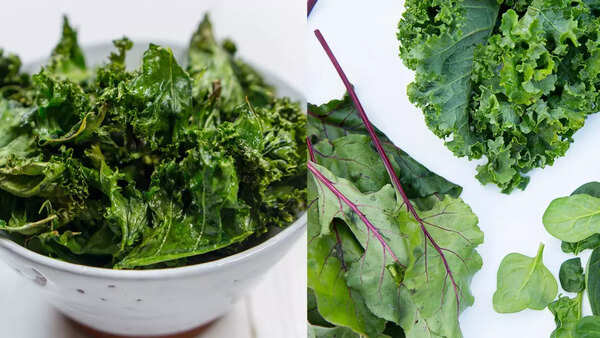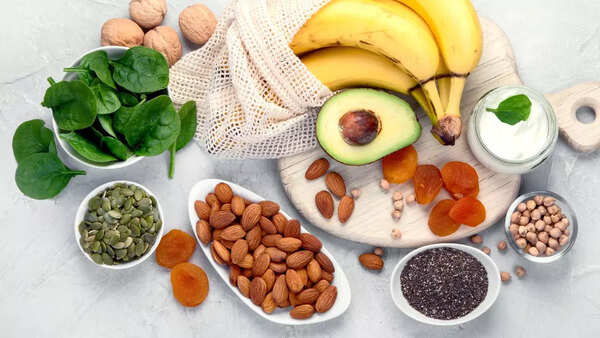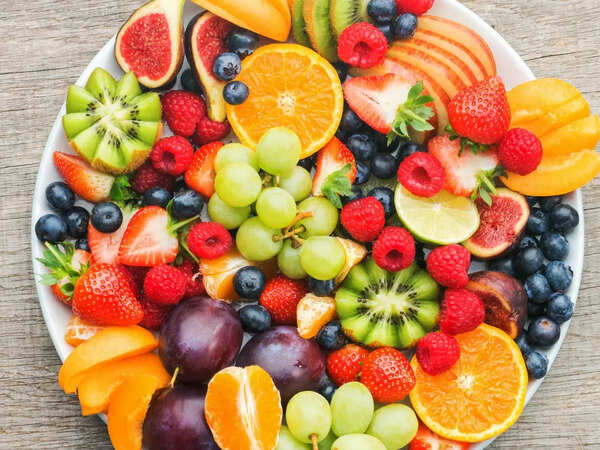strawberry
Strawberries are loved for their sweet and sour taste and texture, but you may be surprised to know that this berry contains high levels of pesticide residues. Common pesticides found on strawberries include fungicides and insecticides, which can be harmful if eaten in large quantities. Long-term exposure to these pesticides can potentially cause health problems such as disruption of the endocrine system and increased risk of cancer. A simple way to clean strawberries is to wash them with vinegar and baking soda, or choose organic strawberries.
spinach
According to the Dirty Dozen list, spinach is more susceptible to contamination due to its high amount of pesticide residues. Pesticides used on spinach may contain organophosphates, which are linked to a variety of health concerns. According to studies, consuming spinach with pesticide residues may contribute to neurological effects and other health problems over time. A simple way to reduce spinach consumption is to choose fresh organic spinach or wash and rinse them in a vegetable cleansing solution.

Kale
Kale is another popular leafy vegetable that often has high pesticide residues. Pesticides used on kale can include herbicides and insecticides. Studies have found that constant exposure to these chemicals can cause digestive problems and long-term health effects. A simple way to stay away from pesticides is to use organic kale or wash conventional kale thoroughly with a vinegar solution to reduce pesticide exposure.
peach
Peaches are high in pesticide residues, including chemicals used to control pests and diseases. The pesticides found in peaches can potentially cause a number of health problems, such as endocrine disruption and other long-term effects. An easy way to prevent this is to wash them in a solution of warm water and vinegar.

Collard greens
Collard greens are also listed due to their high levels of pesticide residues. Pesticides used on lettuce and spinach are often used on collard greens as well. Like other leafy greens, pesticide residues on collard greens can lead to potential health risks if consumed regularly. An easy way to prevent this is to choose organic collard greens and be sure to wash them thoroughly before consumption.
Pear
Pears often contain pesticide residues, including fungicides and insecticides, used to extend shelf life and control pests.
Continued exposure to these pesticides can have adverse health effects, especially on vulnerable populations such as children and pregnant women. Choose organic pears and wash conventional pears thoroughly before eating.

Cherry
Cherries can contain high levels of pesticide residues, including chemicals used to control pests and extend shelf life. Pesticide residues on cherries can pose a number of health risks, including potential hormonal disruption. Choose organic cherries and wash them thoroughly with a vinegar solution to reduce pesticide residues.
Nectarines
Nectarines are often treated with a variety of pesticides, leading to high residue levels on the fruit. Pesticide residue on nectarines can pose health risks over time, including a potential cancer risk. Selecting organic nectarines and washing the outer layer of nectarines with a solution of baking soda or warm water can help keep them well before eating.

Apple
Apples often contain pesticide residues, including those used for pest control and to extend shelf life. Regular consumption of apples with pesticide residues can lead to a variety of health problems, including potential neurotoxic effects. Choose organic apples or wash conventional apples thoroughly with a vinegar solution.
Grape
Grapes often contain high levels of pesticide residues, including fungicides and insecticides. Pesticide residues on grapes can contribute to long-term health effects, including endocrine disruption and other problems. Choose organic grapes and wash conventional grapes thoroughly before eating.

Tomato
Tomatoes, one of the most commonly used ingredients in the kitchen, are commonly treated with pesticides to combat pests and diseases. Eating tomatoes rich in pesticide residues can pose health risks, including potential carcinogenic effects. An easy way to avoid this is to buy organic tomatoes and wash conventional tomatoes thoroughly to reduce pesticide residues.
celery
Celery often contains high levels of pesticide residues, including those used for pest control and growth promotion. Long-term exposure to pesticides on celery can cause a number of health problems, including hormonal disruptions. Choose organic celery and wash conventional celery thoroughly with a vegetable cleaner before eating.
















